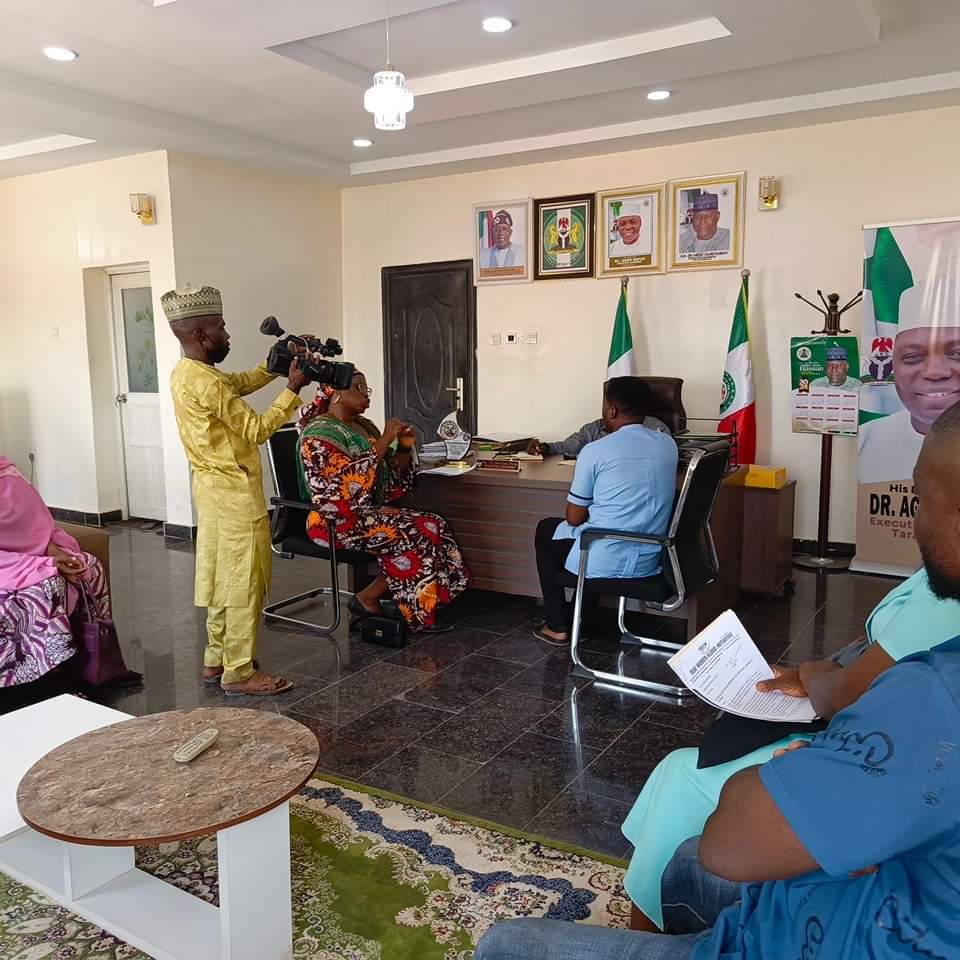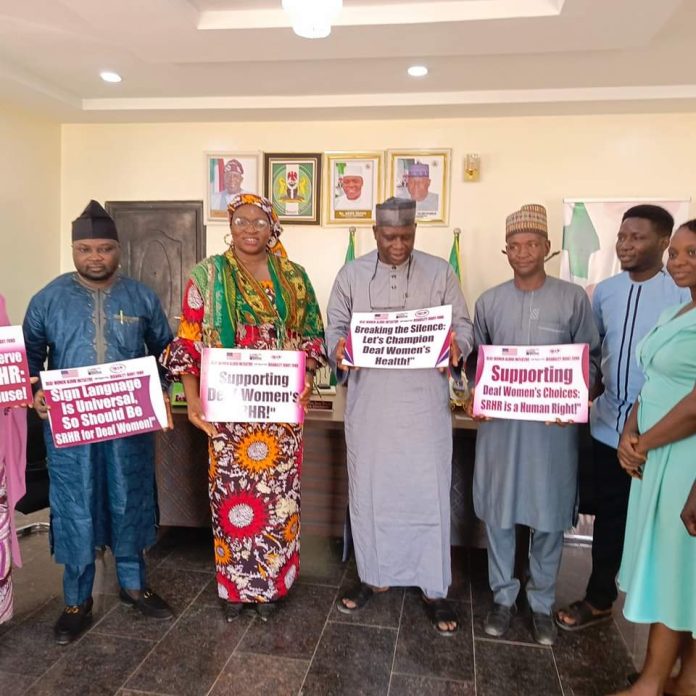Jalingo, Taraba State – In a groundbreaking development, Deaf women in Jalingo Local Government Area of Taraba State can now access quality sexual and reproductive health services with greater ease. This success comes after sustained advocacy by the Deaf Women Aloud Initiative (DWAI) under its Deaf-inclusive Sexual and Reproductive Health (SRH) project.
The breakthrough was achieved thanks to the commitment of the Executive Chairman of Jalingo LGA, Dr. Aminu Hassan, who fulfilled his promise by ensuring a Sign Language Interpreter was employed and stationed at the Nukkai Primary Health Center. This crucial move ensures that Deaf women can now communicate effectively with healthcare providers and receive the essential care they need without barriers.
A Collaborative Effort for Inclusion
An introductory meeting was held at the Nukkai Primary Health Center to launch the initiative, bringing together key stakeholders in the healthcare sector. The meeting set the stage for the smooth integration of the new interpreter into the system and outlined service schedules tailored to meet the needs of Deaf individuals.
Present at the meeting were:
- Chief of Staff of the Local Government
- Mr. Bashir Yakubu, Councillor for Health
- Mrs. Jessica Caleb David, In-Charge of Healthcare
The gathering reaffirmed the commitment of all stakeholders to ensure that the interpreter’s presence translates into a seamless healthcare experience for Deaf women and other individuals in the community.


Dedicated Clinic Days for Deaf Women
The Nukkai Primary Health Center has also taken proactive steps to create a disability-inclusive environment by designating Wednesdays as the official day for Deaf patients to access services. On these days, the clinic will operate with full staff capacity, ensuring that:
- Essential medications will be readily available.
- Immunization services will be provided.
- All healthcare professionals will be on duty to guarantee efficient service delivery.
This arrangement offers a structured and accessible system for Deaf individuals, helping them feel welcome and well-supported when visiting the facility.
A Milestone Achievement Funded by Disability Rights Funds
This advocacy victory is part of a larger strategy supported by the Disability Rights Funds (DRAF Holding Rights, Leading for Rights), a U.S. government-funded initiative aimed at advancing the rights of women with disabilities across West Africa. Through this project, DWAI has focused on breaking communication barriers and ensuring that Deaf women can access vital health services without fear of exclusion or discrimination.
The significance of this achievement cannot be overstated. Sexual and reproductive health services are often inaccessible to women with disabilities, especially Deaf women, due to communication challenges. The employment of a Sign Language Interpreter at Nukkai Primary Health Center represents not just an improvement in healthcare access but also a step toward equity, dignity, and inclusion for persons with disabilities.
Transforming Lives Through Advocacy
This landmark success highlights the power of sustained advocacy and collaboration between civil society organizations and government leaders. With Dr. Aminu Hassan’s visionary leadership and the active involvement of local stakeholders, Jalingo has set an example for other communities to follow in promoting disability-inclusive healthcare systems.
DWAI expressed its gratitude to the Disability Rights Funds for their financial support and praised the collective efforts of all those who contributed to making this initiative a reality. “This milestone marks a new chapter for Deaf women in Jalingo,” DWAI representatives said. “We look forward to replicating similar achievements in other areas of Taraba State and beyond.”
A Call for Continued Action
As DWAI celebrates this achievement, they emphasize that more work remains to be done. The organization hopes that this initiative will inspire other healthcare centers across Nigeria to integrate interpreters and adopt inclusive practices to cater to the needs of persons with disabilities.
This victory in Jalingo serves as a reminder that with the right policies, leadership, and support, no one should be left behind—especially when it comes to accessing essential healthcare services.


